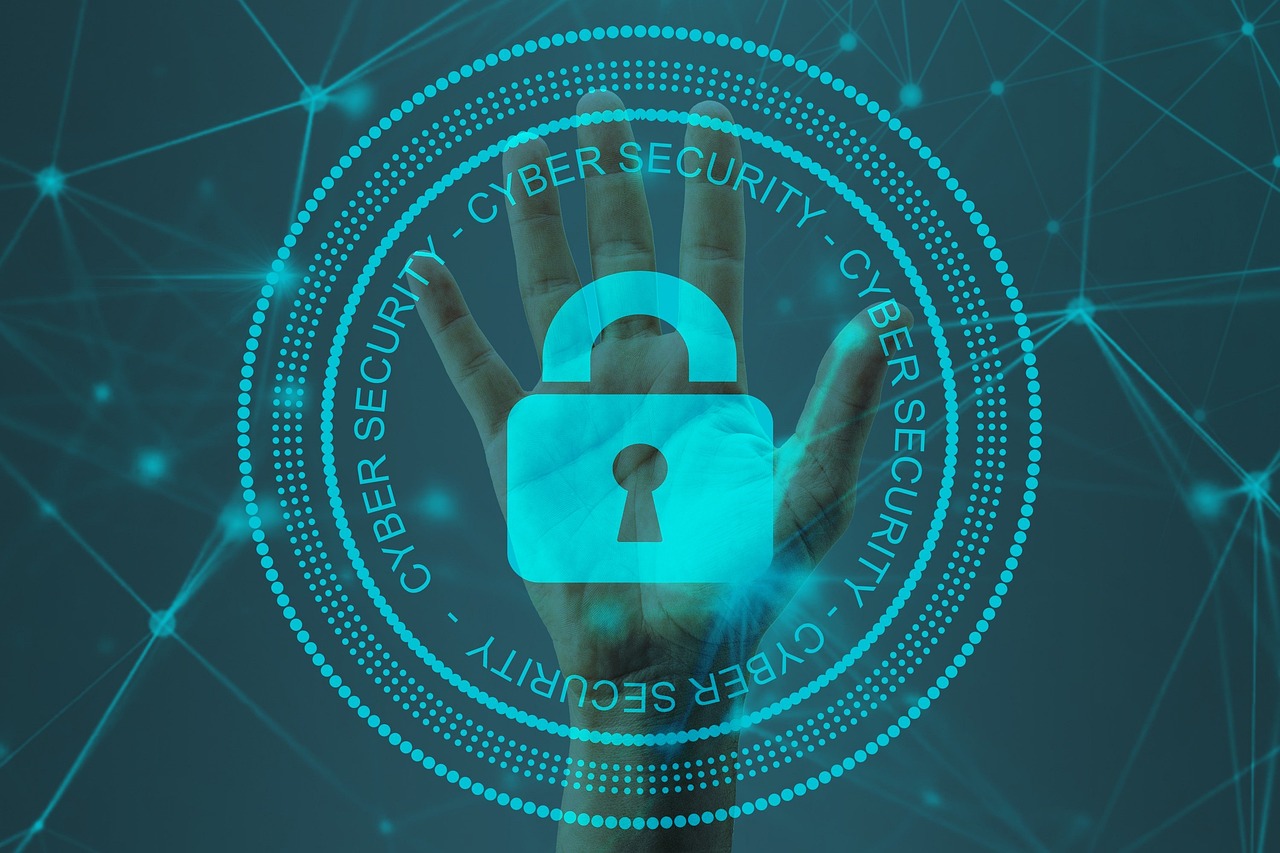Evaluating the Role of Emerging Technologies in National Security
In an age where technology evolves at lightning speed, the landscape of national security is undergoing a profound transformation. Emerging technologies are not just reshaping how governments defend their borders; they are also redefining the very nature of security itself. Imagine a world where artificial intelligence can predict threats before they materialize, or where quantum computing can render traditional encryption obsolete. This isn't science fiction—it's the reality we are stepping into. As nations grapple with these advancements, the question arises: how should they adapt their security strategies to leverage these technologies while mitigating potential risks?
At the heart of this transformation lies the integration of artificial intelligence (AI), machine learning, and even blockchain technology. These innovations promise not only to enhance operational efficiency but also to bring about ethical dilemmas that require careful consideration. For instance, the use of AI in decision-making processes can significantly improve responsiveness in crisis situations, but it also raises questions about accountability and the potential for unintended consequences. Are we ready to trust machines with decisions that could impact lives?
Moreover, as cyber threats become increasingly sophisticated, safeguarding critical infrastructure is more important than ever. The rise of cyberattacks on government systems and private sectors has underscored the need for innovative cybersecurity solutions. Technologies like blockchain are emerging as potential game-changers, offering decentralized and secure methods of communication that could protect sensitive data from breaches. But while these technologies offer promising solutions, they also present challenges in terms of implementation and integration with existing systems.
As we delve deeper into the implications of these technologies, it becomes clear that the future of national security hinges on our ability to adapt and innovate. Countries around the globe must not only embrace these advancements but also address the ethical and practical challenges they bring. For instance, the deployment of robotics and unmanned systems in warfare raises significant ethical questions. While drones enhance surveillance capabilities, their use in combat scenarios necessitates a rigorous examination of the moral implications of allowing machines to make life-and-death decisions.
In summary, as we evaluate the role of emerging technologies in national security, it is essential to strike a balance between leveraging their potential benefits and addressing the inherent risks they pose. The future of national security will not only depend on technological advancements but also on our collective ability to navigate the complexities they introduce. This ongoing dialogue will determine how effectively we can safeguard our nations while embracing the innovations that will shape our world.
- What are emerging technologies in national security?
Emerging technologies refer to advanced innovations such as artificial intelligence, machine learning, blockchain, and quantum computing that are reshaping the strategies and practices within national security.
- How does AI impact defense operations?
AI enhances decision-making processes, optimizes resource allocation, and improves threat detection, but it also raises ethical concerns regarding autonomous weapons and surveillance.
- What role does blockchain play in cybersecurity?
Blockchain provides a decentralized approach to secure communications and data integrity, making it a valuable tool for protecting sensitive information from cyber threats.
- What are the ethical implications of autonomous weapons?
Autonomous weapons raise significant ethical questions about accountability and the moral implications of machines making life-and-death decisions in military operations.
- What challenges does quantum computing pose for national security?
Quantum computing presents challenges such as high costs, technical complexities, and the need for new protocols in cryptography and information security.

The Impact of Artificial Intelligence on Defense
Artificial intelligence (AI) is not just a buzzword; it's a game-changer in the realm of defense operations. Imagine a world where machines can analyze vast amounts of data in seconds, providing military strategists with insights that would take humans days, if not weeks, to decipher. This is the reality that AI is ushering in, revolutionizing everything from decision-making processes to resource allocation. However, with great power comes great responsibility, and the integration of AI into defense strategies raises several ethical concerns that cannot be overlooked.
One of the most significant benefits of AI in defense is its ability to enhance decision-making. For instance, AI algorithms can process real-time data from various sources—satellites, drones, and ground units—allowing commanders to make informed decisions faster than ever before. This rapid analysis can be the difference between success and failure in critical situations. Moreover, AI can optimize resource allocation by predicting equipment failures and maintenance needs, ensuring that military resources are used efficiently and effectively.
However, the rise of AI in defense is not without its challenges. The ethical implications of deploying autonomous weapons systems are a hot topic of debate. Should machines be allowed to make life-and-death decisions? The potential for autonomous weapons to operate without human oversight raises significant moral questions. For example, if an AI system mistakenly targets civilians during a military operation, who is held accountable? These are questions that military leaders and policymakers must grapple with as they integrate AI into their strategies.
Furthermore, the surveillance capabilities provided by AI technology present another layer of complexity. While enhanced surveillance can improve national security, it also raises concerns about privacy and civil liberties. The ability to monitor individuals and groups at an unprecedented scale could lead to abuses of power if not regulated properly. Therefore, governments must strike a balance between leveraging AI for security and protecting citizens' rights.
In conclusion, the impact of AI on defense is profound and multifaceted. While it offers numerous benefits, including improved decision-making and resource optimization, it also presents ethical dilemmas and challenges that must be addressed. As we move forward, it is crucial for governments and defense organizations to engage in open dialogues about the implications of AI, ensuring that its integration into national security strategies is both effective and responsible. The future of defense will undoubtedly be shaped by these emerging technologies, and how we navigate this landscape will define the security of nations worldwide.
- What are the main benefits of AI in defense? AI enhances decision-making, optimizes resource allocation, and improves threat detection.
- What ethical concerns are associated with autonomous weapons? The primary concern is accountability; if an AI system makes a mistake, it raises questions about who is responsible.
- How can AI improve surveillance in national security? AI can analyze large datasets to identify potential threats and improve situational awareness.
- What is the future of AI in defense? The future will likely see greater integration of AI technologies, but it will require careful consideration of ethical implications.

Cybersecurity: Safeguarding National Infrastructure
In today's digital age, the importance of cybersecurity cannot be overstated. As nations increasingly rely on technology to manage their critical infrastructure, the potential for cyber threats has skyrocketed. From power grids to water supply systems, these infrastructures are the backbone of society, and safeguarding them is paramount. The stakes are high; a successful cyberattack can lead to devastating consequences, including economic disruption, loss of public trust, and even threats to national security.
Emerging technologies are playing a crucial role in enhancing cybersecurity measures. Governments and organizations are leveraging advanced tools to combat the evolving landscape of cyber threats. For instance, the integration of artificial intelligence (AI) in cybersecurity systems allows for real-time threat detection and response. AI algorithms can analyze vast amounts of data to identify anomalies and potential breaches faster than any human could. This capability is essential in a world where cyberattacks are becoming more sophisticated and frequent.
Moreover, the adoption of machine learning techniques is revolutionizing the way we approach cybersecurity. These systems can learn from previous attacks and adapt their defenses accordingly, creating a dynamic shield against potential threats. As cybercriminals become more adept at exploiting vulnerabilities, the need for adaptive and proactive measures has never been greater.
Another innovative solution in the realm of cybersecurity is the use of blockchain technology. By providing a decentralized and tamper-proof method for storing and sharing data, blockchain can significantly enhance the security of communications within national infrastructure. For example, sensitive data regarding energy management systems can be secured through blockchain, ensuring that unauthorized access is virtually impossible.
To effectively combat cyber threats, a multi-layered approach is essential. This involves not only technological innovations but also comprehensive strategies that include:
- Regular security audits and assessments
- Employee training and awareness programs
- Collaboration with international cybersecurity organizations
- Investment in advanced security technologies
By implementing these measures, governments can enhance their resilience against cyberattacks, ensuring that national infrastructure remains secure and operational. However, it’s not just about technology; a culture of security awareness must permeate all levels of an organization.
Building resilience involves not only preparing for potential attacks but also ensuring a swift recovery when incidents occur. This requires a comprehensive incident response plan that outlines clear procedures for mitigating damage and restoring services. A well-prepared organization can significantly reduce downtime and maintain public confidence in critical services.
In conclusion, as we navigate the complexities of the digital landscape, the role of cybersecurity in safeguarding national infrastructure is more critical than ever. By embracing emerging technologies and fostering a culture of vigilance, governments can protect their citizens and maintain the integrity of essential systems. The future may be uncertain, but with the right strategies in place, we can face the challenges head-on.
Q: What are the main threats to national infrastructure?
A: The main threats include cyberattacks from hackers, state-sponsored threats, natural disasters, and insider threats. Each of these can disrupt essential services and compromise safety.
Q: How can organizations improve their cybersecurity posture?
A: Organizations can improve their cybersecurity by implementing multi-factor authentication, conducting regular security training for employees, and investing in advanced security technologies.
Q: What role does AI play in cybersecurity?
A: AI enhances cybersecurity by providing real-time threat detection, analyzing data for anomalies, and automating responses to potential breaches, thus allowing for quicker and more effective defense mechanisms.
Q: Why is blockchain considered a secure technology for communications?
A: Blockchain is secure because it decentralizes data storage and uses cryptographic techniques to ensure that once data is recorded, it cannot be altered or tampered with, making unauthorized access extremely difficult.

Blockchain for Secure Communications
In an era where data breaches and cyber threats are becoming alarmingly common, the need for secure communication channels has never been more critical. Enter blockchain technology, a revolutionary approach that offers a decentralized framework for securing communications and maintaining data integrity. Imagine a communication system where every message is encrypted, tamper-proof, and only accessible to authorized parties. Sounds like something out of a sci-fi movie, right? But the truth is, blockchain is making this a reality.
At its core, blockchain operates as a distributed ledger that records transactions across multiple computers. This means that no single entity has control over the entire network, making it incredibly difficult for malicious actors to manipulate or access sensitive information. In the context of national security, this is a game-changer. Governments can utilize blockchain to ensure that military communications, intelligence reports, and classified data remain confidential and secure. By employing this technology, they can drastically reduce the risk of espionage and unauthorized access.
One of the standout features of blockchain is its ability to create smart contracts. These are self-executing contracts with the terms of the agreement directly written into code. In military applications, smart contracts can facilitate secure communication protocols that automatically enforce rules and regulations. For instance, if a message is sent, the smart contract can verify the sender's identity and ensure that the recipient is authorized to receive it. This level of automation not only enhances security but also streamlines operations, allowing for quicker decision-making during critical situations.
However, while the benefits of blockchain in secure communications are compelling, there are challenges to consider. The technology is still relatively new, and integrating it into existing systems can be complex. Additionally, scalability remains a concern; as the number of users and transactions increases, maintaining speed and efficiency can become problematic. Despite these hurdles, the potential for blockchain to transform secure communications is immense, and ongoing research and development are likely to yield innovative solutions.
In conclusion, blockchain technology stands at the forefront of securing communications in national security contexts. Its decentralized nature, coupled with features like smart contracts, provides a robust framework for safeguarding sensitive information against cyber threats. As governments and defense systems worldwide continue to explore and implement this technology, we can expect to see a significant shift in how secure communications are conducted, ultimately enhancing national security.
- What is blockchain technology? Blockchain is a decentralized digital ledger that records transactions across multiple computers, ensuring that the information is secure and tamper-proof.
- How can blockchain enhance communication security? By decentralizing the control of data and utilizing encryption, blockchain makes it extremely difficult for unauthorized parties to access or alter sensitive information.
- What are smart contracts? Smart contracts are self-executing contracts with the terms of the agreement directly written into code, allowing for automated and secure transactions.
- What challenges does blockchain face in national security? Challenges include integration with existing systems, scalability issues, and the need for ongoing research to enhance its capabilities.

Smart Contracts in Defense Procurement
In the rapidly evolving landscape of national security, smart contracts are emerging as a transformative force in defense procurement. These self-executing contracts, powered by blockchain technology, automatically enforce and execute the terms of an agreement without the need for intermediaries. Imagine a world where military contracts are not only transparent but also free from the risk of human error or fraud. This is the promise that smart contracts hold.
One of the most significant advantages of implementing smart contracts in defense procurement is the enhanced transparency they provide. By utilizing a decentralized ledger, all parties involved can access real-time data on contract terms, execution, and compliance. This visibility helps to build trust among stakeholders, as everyone can verify that the terms are being met without the possibility of manipulation. For instance, when a contractor delivers supplies, the smart contract can automatically confirm receipt and release payment, ensuring that funds are only disbursed when obligations are fulfilled.
Moreover, smart contracts can significantly streamline the procurement process. Traditional methods often involve lengthy paperwork and multiple layers of approval, which can delay essential deliveries. With smart contracts, the process becomes more efficient, allowing for quicker decision-making and execution. As a result, defense agencies can respond more rapidly to emerging threats, ensuring that they have the necessary resources at their disposal when they need them the most.
However, the implementation of smart contracts is not without its challenges. For instance, integrating this technology with existing procurement systems can be complex and require substantial investment. Additionally, there is a need for a robust legal framework to ensure that smart contracts are recognized and enforceable in various jurisdictions. Despite these hurdles, the potential benefits make a compelling case for their adoption.
| Benefits of Smart Contracts | Challenges of Smart Contracts |
|---|---|
| Enhanced transparency and trust | Integration with existing systems |
| Increased efficiency in procurement processes | Need for legal recognition |
| Reduction in fraud and human error | Initial investment and technical expertise |
In conclusion, the adoption of smart contracts in defense procurement represents a significant leap forward in modernizing how military contracts are managed. By leveraging blockchain technology, defense agencies can enhance transparency, streamline processes, and reduce the risks associated with traditional contracting methods. As we move forward, it will be crucial for governments to address the challenges of implementation, ensuring that the potential of smart contracts is fully realized in the pursuit of national security.
- What are smart contracts?
Smart contracts are self-executing contracts with the terms of the agreement directly written into code on a blockchain. - How do smart contracts enhance transparency?
They provide a decentralized ledger that allows all parties to view real-time data on contract execution and compliance. - What challenges do smart contracts face in defense procurement?
Challenges include integration with existing systems, legal recognition, and the need for significant investment. - Can smart contracts reduce fraud?
Yes, by automating contract execution and eliminating intermediaries, smart contracts can significantly reduce opportunities for fraud.

Challenges of Implementing Blockchain
Implementing blockchain technology in the realm of national security is not without its hurdles. While the promise of enhanced security and transparency is enticing, various challenges must be addressed to fully harness its potential. One significant obstacle is the issue of scalability. As the volume of transactions increases, the blockchain network must be capable of handling this growth without compromising speed or efficiency. Current blockchain solutions can struggle with large-scale operations, leading to delays that could be detrimental in critical security applications.
Moreover, integration with existing systems poses another challenge. Many government and military organizations have established infrastructures that are deeply rooted in traditional technologies. Transitioning to blockchain requires not only technological upgrades but also a cultural shift within these organizations. The resistance to change can slow down the adoption process significantly. In addition, there is a need for interoperability between different blockchain systems to ensure seamless communication and data sharing across various platforms.
Another critical concern is the regulatory landscape. The legal frameworks governing blockchain technology are still evolving, and there is a lack of clear guidelines on its use in national security. This uncertainty can deter organizations from adopting blockchain solutions due to fears of potential legal repercussions. Furthermore, issues related to data privacy must be carefully navigated. While blockchain offers a high level of security, the transparency it provides can sometimes conflict with the need for confidentiality in sensitive military operations.
Finally, the cost of implementation cannot be overlooked. Developing and maintaining a blockchain system requires significant investment in technology and training. Many defense organizations may find it challenging to allocate sufficient resources for such initiatives, especially in times of budget constraints. Therefore, addressing these challenges is crucial for the successful integration of blockchain technology into national security strategies.
- What is blockchain technology? Blockchain is a decentralized digital ledger that records transactions across many computers securely and immutably.
- How can blockchain enhance national security? By providing secure communications, improving data integrity, and streamlining processes, blockchain can significantly bolster national security measures.
- What are the main challenges in implementing blockchain? Key challenges include scalability, integration with existing systems, regulatory uncertainties, data privacy issues, and high implementation costs.
- Is blockchain technology already being used in defense? Yes, some defense organizations are exploring blockchain for secure communications and supply chain management, although widespread adoption is still in progress.

Machine Learning in Threat Detection
In today's rapidly evolving security landscape, machine learning has emerged as a game-changer in the field of threat detection. By leveraging advanced algorithms and vast datasets, machine learning systems can analyze patterns and identify anomalies that might indicate a security breach or potential threat. Imagine having a digital watchdog that never sleeps, continuously learning and adapting to new data, making it increasingly effective at spotting irregularities. This capability is crucial as cyber threats become more sophisticated and frequent.
One of the most compelling aspects of machine learning in threat detection is its ability to process and analyze data at a speed and scale that humans simply cannot match. Traditional methods often rely on predefined rules and signatures to identify threats, which can leave systems vulnerable to new, unknown attacks. In contrast, machine learning models can learn from historical data, recognize subtle patterns, and make predictions about future threats. This proactive approach allows organizations to stay one step ahead of cybercriminals.
For instance, consider the use of machine learning in analyzing network traffic. By continuously monitoring data flows, these systems can detect unusual spikes or drops in activity, signaling a possible intrusion. They can also differentiate between normal user behavior and suspicious actions, reducing false positives and enhancing the accuracy of threat detection. This capability is vital for organizations that need to maintain operational continuity while safeguarding sensitive information.
Moreover, machine learning can enhance incident response strategies. When a potential threat is detected, machine learning algorithms can help prioritize alerts based on the severity and potential impact of the threat. This prioritization allows security teams to focus their efforts on the most critical issues, improving response times and reducing the damage caused by breaches.
However, the implementation of machine learning in threat detection is not without its challenges. Organizations must ensure they have access to high-quality data, as the effectiveness of machine learning models heavily relies on the data used for training. Additionally, there is a need for skilled professionals who can develop, implement, and maintain these systems. As the demand for machine learning expertise grows, organizations may face difficulties in finding qualified personnel.
In summary, machine learning is revolutionizing threat detection by providing organizations with powerful tools to identify and respond to security risks. Its ability to analyze vast amounts of data quickly and accurately is transforming how we approach cybersecurity. As technology continues to evolve, the integration of machine learning into national security strategies will likely become more prevalent, paving the way for a safer digital landscape.
- What is machine learning in the context of threat detection? Machine learning refers to the use of algorithms that enable systems to learn from data, identify patterns, and make predictions about potential threats.
- How does machine learning improve the accuracy of threat detection? By analyzing large datasets and recognizing patterns, machine learning models can differentiate between normal and suspicious activity, thereby reducing false positives.
- What are the challenges of implementing machine learning in cybersecurity? Challenges include the need for high-quality data, skilled personnel, and the integration of machine learning systems into existing security infrastructures.
- Can machine learning help in incident response? Yes, machine learning can prioritize alerts based on the severity of threats, allowing security teams to respond more effectively to critical issues.

Robotics and Unmanned Systems in Warfare
The landscape of modern warfare is undergoing a radical transformation, largely due to the integration of robotics and unmanned systems. These technologies are not just enhancing military capabilities; they're redefining the very nature of combat. Imagine a battlefield where drones buzz overhead, collecting real-time intelligence, while ground robots navigate treacherous terrain to deliver supplies or even engage in combat. This shift towards automation is not merely a trend; it's a fundamental change in how wars are fought and won.
One of the most significant advantages of using unmanned systems is the ability to minimize human casualties. In high-stakes environments, sending a robot to perform dangerous tasks can save lives. For instance, drones equipped with surveillance technology can scout enemy positions without risking a soldier's life. This capability not only increases the safety of military personnel but also enhances operational efficiency. However, this raises questions about the ethics of warfare. Are we, as a society, comfortable with machines making critical decisions that could result in loss of life?
Unmanned systems also bring a level of precision that was previously unattainable. The use of drones for targeted strikes allows for a more surgical approach to combat, potentially reducing collateral damage. This precision is critical in urban warfare scenarios where the risk of harming civilians is high. However, the reliance on robotics and unmanned systems can lead to overconfidence. Are military leaders becoming too dependent on technology, potentially overlooking the importance of human judgment in combat situations?
Moreover, the integration of artificial intelligence into robotics is pushing the boundaries of what these systems can do. AI can analyze vast amounts of data in real-time, allowing unmanned systems to adapt to changing battlefield conditions. For example, a drone equipped with machine learning algorithms can identify threats more accurately than human operators, making it a valuable asset in any military operation. Yet, this reliance on AI also brings forth concerns regarding autonomy and decision-making in combat. How do we ensure that these systems operate within ethical boundaries?
To illustrate the role of robotics and unmanned systems in warfare, consider the following table that outlines various applications and their implications:
| Application | Description | Benefits | Challenges |
|---|---|---|---|
| Drones for Surveillance | Unmanned aerial vehicles (UAVs) used for reconnaissance. | Enhanced situational awareness, reduced risk to personnel. | Potential for privacy violations, reliance on technology. |
| Robotic Ground Vehicles | Autonomous vehicles used for logistics and combat support. | Increased operational efficiency, reduced human risk. | Vulnerability to hacking, high development costs. |
| Autonomous Weapons Systems | Weapons that can select and engage targets without human intervention. | Increased precision and speed in combat. | Ethical concerns, accountability issues in case of mistakes. |
In conclusion, while robotics and unmanned systems present remarkable opportunities for enhancing military operations, they also pose significant ethical and operational challenges. The balance between leveraging technology for efficiency and maintaining human oversight is crucial. As we continue to integrate these technologies into our defense strategies, we must also engage in a broader conversation about the implications of such advancements on warfare and society as a whole.
Q1: What are the primary benefits of using unmanned systems in warfare?
A1: The main benefits include reduced risk to human soldiers, increased precision in targeting, and enhanced situational awareness through real-time data collection.
Q2: What ethical concerns are associated with autonomous weapons?
A2: Ethical concerns revolve around accountability for decisions made by machines, the potential for unintended casualties, and the moral implications of allowing machines to engage in combat.
Q3: How does AI improve the effectiveness of robotic systems in combat?
A3: AI enhances robotic systems by enabling them to analyze data quickly, adapt to changing conditions, and make informed decisions in real-time, improving overall effectiveness.

Drone Technology and Surveillance
In recent years, drone technology has emerged as a game-changer in the realm of surveillance and reconnaissance. These unmanned aerial vehicles (UAVs) are not just flying gadgets; they represent a significant leap forward in how military and defense operations are conducted. With their ability to gather real-time intelligence, drones have become indispensable tools on the battlefield, providing a bird's-eye view of operations and enhancing situational awareness.
One of the most compelling aspects of drone technology is its versatility. Drones can be equipped with a variety of sensors and cameras that allow them to perform numerous tasks. For instance, they can be used for:
- Real-time surveillance: Monitoring enemy movements and activities without risking human lives.
- Reconnaissance: Gathering intelligence on enemy positions and fortifications.
- Target acquisition: Identifying and tracking potential targets for military operations.
Moreover, drones can operate in environments that are too dangerous for human personnel. Imagine a scenario where troops are deployed in hostile territory; sending a drone to gather intelligence can significantly reduce the risk of casualties. This capability not only enhances operational effectiveness but also provides commanders with critical information to make informed decisions.
However, the rise of drone technology in surveillance is not without its challenges. Ethical considerations come into play, particularly concerning privacy and the potential for misuse. As drones become more sophisticated, the line between legitimate surveillance and invasion of privacy can blur. Governments and military organizations must navigate these murky waters carefully, ensuring that drone usage adheres to established legal and ethical standards.
Furthermore, the integration of drone technology into existing military frameworks requires substantial investment and training. Personnel must be adequately trained to operate these advanced systems, and the infrastructure to support drone operations must be established. This can involve significant costs and logistical planning, which can be a hurdle for many nations.
Despite these challenges, the benefits of drone technology in surveillance are undeniable. As nations continue to invest in and develop their drone capabilities, we can expect to see even more innovative applications emerge. From enhancing intelligence-gathering capabilities to enabling more effective military strategies, drones are set to play a crucial role in the future of national security.
- What are the main advantages of using drones for surveillance? Drones provide real-time intelligence, reduce the risk to human lives, and can operate in challenging environments.
- Are there ethical concerns related to drone surveillance? Yes, issues such as privacy invasion and the potential for misuse are significant ethical considerations.
- How do drones enhance military operations? Drones improve situational awareness, assist in reconnaissance, and aid in target acquisition, leading to more informed decision-making.

Ethical Considerations of Autonomous Weapons
The advent of autonomous weapons systems (AWS) marks a profound shift in the landscape of modern warfare. While these technologies promise increased efficiency and precision in combat, they also bring forth a myriad of ethical dilemmas that cannot be overlooked. Imagine a battlefield where decisions about life and death are made by algorithms instead of humans—this is not just science fiction; it's a reality that is rapidly approaching. The question arises: should we allow machines to wield such power?
One of the most pressing ethical concerns is the concept of accountability. When an autonomous weapon makes a mistake—say, targeting civilians instead of combatants—who is held responsible? Is it the programmer, the military commander, or the machine itself? This lack of clear accountability can lead to a moral quagmire, where the very essence of justice is called into question. Moreover, the potential for AWS to operate without human oversight raises alarms about the erosion of ethical decision-making in warfare.
Another significant issue is the potential for bias in the algorithms that govern these systems. If the data fed into these machines is flawed or biased, the outcomes can be catastrophic. For instance, an AWS trained on historical data that reflects biased military strategies may perpetuate those biases in real-world scenarios. This could lead to disproportionate harm to certain populations, raising questions about fairness and justice in conflict.
Furthermore, the deployment of autonomous weapons could lower the threshold for going to war. When the risk to human soldiers is minimized, nations might be more inclined to engage in military action. This could lead to an increase in conflicts, as the human cost of warfare becomes less tangible. The ethical implications of such a shift are profound, suggesting a future where wars are fought with little regard for human life.
To better understand these ethical considerations, let’s look at a few key points:
- Accountability: Who is responsible for the actions of an autonomous weapon?
- Bias and Fairness: How do we ensure that algorithms are free from bias?
- War Ethics: Will AWS change the way nations approach warfare?
As we advance into this new era of warfare, it is crucial that policymakers, technologists, and ethicists engage in an ongoing dialogue about the implications of autonomous weapons. The development and deployment of these systems should not outpace our ability to understand and manage their ethical ramifications. In essence, we must ensure that technology serves humanity, rather than the other way around.
In conclusion, while autonomous weapons may offer tactical advantages, the ethical considerations surrounding their use present significant challenges. As we navigate this complex terrain, it is imperative to maintain a focus on human rights, accountability, and the moral implications of allowing machines to make life-and-death decisions.
Q1: What are autonomous weapons?
A1: Autonomous weapons are systems capable of selecting and engaging targets without human intervention. They utilize artificial intelligence and machine learning to operate.
Q2: Why are ethical considerations important in the context of autonomous weapons?
A2: Ethical considerations are crucial because these systems can make life-and-death decisions. Issues of accountability, bias, and the potential for increased warfare must be addressed to ensure responsible use.
Q3: How can we ensure accountability for autonomous weapons?
A3: Establishing clear guidelines and legal frameworks that define responsibility and accountability for the actions of autonomous systems is essential. Ongoing discussions among policymakers, technologists, and ethicists are necessary.
Q4: What are the risks associated with biased algorithms in autonomous weapons?
A4: Biased algorithms can lead to unfair targeting and disproportionate harm to specific groups, raising serious ethical and humanitarian concerns.
Q5: Could the use of autonomous weapons lead to more conflicts?
A5: Yes, the reduced risk to human soldiers may lower the threshold for military engagement, potentially leading to an increase in conflicts.

Quantum Computing and National Security
Quantum computing is not just a buzzword; it's a revolutionary technology that has the potential to reshape the landscape of national security. Imagine a world where data processing speeds are exponentially faster than today's capabilities, allowing governments to analyze vast amounts of data in real time. This could mean the difference between thwarting a cyberattack and facing a devastating breach of security. The implications are enormous, particularly in the realms of cryptography and information warfare.
One of the most exciting prospects of quantum computing is its ability to enhance cryptography. Traditional encryption methods, which rely on mathematical algorithms, are increasingly at risk as computers become more powerful. Quantum computers, however, utilize the principles of quantum mechanics to create encryption methods that are virtually unbreakable. For instance, quantum key distribution (QKD) allows for the secure transmission of information, ensuring that any attempt to intercept the communication would be detectable. This could be a game-changer for national security, safeguarding sensitive information from cyber threats and espionage.
However, as with any emerging technology, the path to widespread adoption of quantum computing in national security is fraught with challenges. The costs associated with developing quantum technology are staggering, and the technical complexities involved in building and maintaining quantum systems can deter investment. Furthermore, there is a pressing need for skilled professionals who understand both quantum mechanics and cybersecurity. Without this expertise, governments may struggle to effectively implement these advanced systems.
To illustrate the potential impact of quantum computing on national security, consider the following table:
| Aspect | Traditional Computing | Quantum Computing |
|---|---|---|
| Data Processing Speed | Linear | Exponential |
| Encryption Security | Vulnerable to attacks | Virtually unbreakable |
| Cost of Implementation | Relatively lower | High initial investment |
| Expertise Required | Standard IT knowledge | Advanced quantum knowledge |
As governments begin to recognize the potential of quantum technology, they must also navigate the delicate balance between innovation and security. The race to develop quantum capabilities is not just about technological superiority; it's also about maintaining national security in an increasingly complex global landscape. Countries investing in quantum technology may gain significant advantages in intelligence gathering and defense strategies, leading to a new arms race in quantum capabilities.
In conclusion, while quantum computing presents exciting opportunities for enhancing national security, it also brings forth a host of challenges that must be addressed. From the need for substantial investment to the requirement for specialized knowledge, the journey toward integrating quantum technology into national defense systems will be a complex one. However, the potential rewards—unbreakable encryption, faster data analysis, and improved threat detection—make it a pursuit worth undertaking.
- What is quantum computing? Quantum computing uses the principles of quantum mechanics to process information in ways that traditional computers cannot.
- How does quantum computing impact national security? It enhances cryptography, improves data processing speeds, and offers new ways to secure communications.
- What are the challenges of adopting quantum technology? High costs, technical complexities, and the need for specialized expertise are significant barriers to implementation.
- Can quantum computing break existing encryption methods? Yes, quantum computers have the potential to break many traditional encryption algorithms, which is why new quantum-resistant methods are being developed.

Quantum Encryption for Secure Communications
In an era where data breaches and cyberattacks are becoming alarmingly common, quantum encryption emerges as a beacon of hope for secure communications. By leveraging the principles of quantum mechanics, this technology offers a level of security that traditional encryption methods simply cannot match. Imagine a world where your sensitive information is transmitted with a guarantee that it cannot be intercepted or tampered with—this is the promise of quantum encryption.
At its core, quantum encryption utilizes quantum key distribution (QKD), a method that ensures any attempt to eavesdrop on the communication channel is detectable. This is akin to having a security system that alerts you the moment someone tries to break in. The fundamental principle behind QKD is based on the behavior of quantum particles; any observation made on a quantum system alters its state, thus revealing the presence of an intruder. This unique feature provides a level of assurance that is crucial for national security communications.
Moreover, the application of quantum encryption extends beyond mere data transmission. It holds the potential to revolutionize various sectors, including military operations, governmental communications, and even financial transactions. By implementing quantum encryption, governments can safeguard sensitive information from espionage and cyber threats, ensuring that their strategies and operations remain confidential. This is particularly vital in a world where information warfare is on the rise, and the stakes are higher than ever.
However, the implementation of quantum encryption is not without its challenges. The technology requires significant investment in infrastructure and expertise. For instance, the physical equipment needed to generate and distribute quantum keys can be costly and complex. Additionally, integrating quantum encryption systems with existing communication frameworks poses another layer of difficulty. Despite these hurdles, the potential benefits far outweigh the challenges.
To illustrate the transformative potential of quantum encryption, consider the following table that compares traditional encryption methods to quantum encryption:
| Feature | Traditional Encryption | Quantum Encryption |
|---|---|---|
| Security Level | Vulnerable to advanced attacks | Unbreakable with current technology |
| Eavesdropping Detection | Not detectable | Immediate detection |
| Key Distribution | Requires secure channels | Utilizes quantum mechanics |
| Implementation Cost | Relatively low | High initial investment |
As we move forward, it is essential for governments and organizations to invest in quantum encryption technologies. The implications of failing to adapt to this new paradigm could be dire. In a landscape where cyber threats are evolving rapidly, adopting quantum encryption could be the difference between maintaining secure communications and facing catastrophic breaches.
- What is quantum encryption? Quantum encryption is a method of securing communications using the principles of quantum mechanics, which ensures that any interception of the data can be detected.
- How does quantum key distribution work? Quantum key distribution allows two parties to generate a shared, secret random key, which can be used for secure communication. Any eavesdropping attempt will disturb the quantum state and be detectable.
- What are the challenges of implementing quantum encryption? The main challenges include high costs, technical complexities, and the need for new infrastructure to support quantum technologies.
- Is quantum encryption foolproof? While quantum encryption offers unprecedented security, it is essential to remain vigilant and continuously update security protocols to address emerging threats.

Challenges in Quantum Technology Adoption
Adopting quantum technology is akin to climbing a steep mountain; the view from the top promises revolutionary advancements, but the journey is fraught with obstacles. One of the **most significant challenges** is the high cost associated with developing and implementing quantum systems. These technologies require specialized materials, environments, and expertise, making them a hefty investment for governments and organizations alike. The financial burden can deter many entities from pursuing quantum solutions, especially when budgets are tight and priorities are shifting.
Moreover, the technical complexities of quantum technology cannot be overlooked. Quantum computing relies on principles of quantum mechanics that are not only difficult to understand but also challenging to apply practically. For instance, maintaining qubit coherence is a monumental task, as qubits are extremely sensitive to their environment. This sensitivity leads to errors in calculations, necessitating the development of sophisticated error correction methods. The intricacies involved in ensuring operational reliability can create a bottleneck in the adoption process.
Another hurdle is the **integration with existing systems**. Many organizations have established infrastructures that are not designed to accommodate quantum technologies. This incompatibility can lead to significant delays and increased costs as organizations struggle to adapt their systems. Transitioning to quantum solutions requires not just hardware changes but also a complete overhaul of software and protocols, which can be a daunting task.
Additionally, there is a **shortage of skilled professionals** in the field of quantum technology. The rapid pace of advancements means that educational institutions are racing to keep up with the demand for quantum scientists and engineers. Without a robust pipeline of talent, the implementation of quantum technologies will face significant delays. As the industry grows, attracting and retaining skilled workers becomes essential to overcoming this challenge.
Despite these hurdles, the potential benefits of quantum technology are too significant to ignore. Governments and organizations must work collaboratively to address these challenges. Initiatives could include investing in research and development, fostering partnerships between academia and industry, and creating educational programs to train the next generation of quantum experts. By taking proactive steps, we can pave the way for a future where quantum technology plays a pivotal role in national security.
- What is quantum technology? Quantum technology encompasses various technologies based on the principles of quantum mechanics, including quantum computing, quantum encryption, and quantum sensors.
- Why is quantum technology important for national security? Quantum technology has the potential to enhance data security, improve threat detection, and revolutionize military operations, making it crucial for modern defense strategies.
- What are the main challenges in adopting quantum technology? The primary challenges include high costs, technical complexities, integration issues with existing systems, and a shortage of skilled professionals in the field.
- How can organizations overcome these challenges? Organizations can invest in research, foster educational programs, and collaborate with industry partners to build a skilled workforce and develop practical solutions.
Frequently Asked Questions
- What role does artificial intelligence play in national security?
Artificial intelligence (AI) is transforming national security by enhancing decision-making processes and optimizing resource allocation. It helps in analyzing vast amounts of data quickly, allowing defense systems to respond effectively to threats. However, it also raises ethical concerns, particularly regarding autonomous weapons and surveillance capabilities.
- How is cybersecurity evolving to protect national infrastructure?
As cyber threats become more sophisticated, emerging technologies are crucial for safeguarding critical infrastructure. Innovations in cybersecurity, such as advanced threat detection systems and proactive defense measures, are being implemented to combat cyberattacks and enhance resilience against potential breaches.
- What are the benefits of using blockchain in national security?
Blockchain technology offers a decentralized approach to secure communications and ensures data integrity. Its applications in military and government communications can help prevent data breaches and enhance transparency in defense procurement through smart contracts, which streamline processes and mitigate fraud.
- What challenges does blockchain face in national security?
Implementing blockchain in national security presents challenges such as scalability issues and the need for integration with existing systems. Overcoming these hurdles requires innovative solutions and collaboration between technology providers and government agencies to ensure successful adoption.
- How is machine learning used in threat detection?
Machine learning algorithms are increasingly employed for threat detection and analysis. They enhance the ability to identify potential security risks by analyzing patterns and anomalies in data, thereby improving response strategies and overall situational awareness.
- What ethical considerations arise from the use of autonomous weapons?
The deployment of autonomous weapons raises significant ethical questions regarding accountability and decision-making in life-and-death situations. It is vital to consider the implications of allowing machines to make such critical choices in military operations, as it could lead to unintended consequences.
- How does quantum computing impact national security?
Quantum computing promises to revolutionize data processing and encryption, significantly impacting national security. Its potential in cryptography can enhance secure communications, making it harder for adversaries to intercept sensitive information, thereby protecting national interests.
- What are the challenges in adopting quantum technology?
Adopting quantum technology poses challenges, including high costs and technical complexities. Organizations must navigate these barriers by investing in research and development and fostering partnerships to facilitate the integration of quantum solutions into existing security frameworks.



















